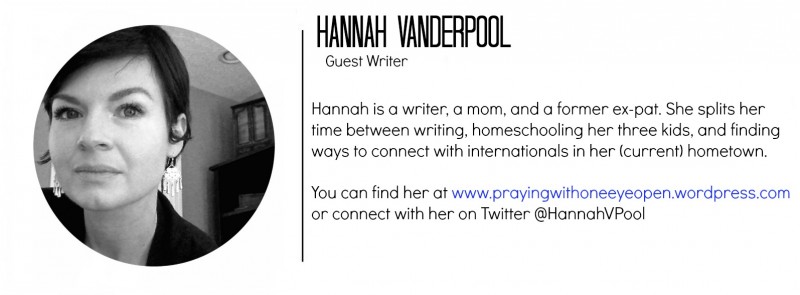Surviving America: A Dog Tale
My husband and I didn’t want a puppy after returning to the US, but our kids had begged us for months. Living in India for three years had provided us enough adventures to last a lifetime, we reasoned, and we didn’t need to add a dog to the mix. After all, we’d visited the Taj Mahal, and piled on top of elephants, the five of us riding together. We’d celebrated Diwali with our neighbors and attended a friend’s lavish Sikh wedding. We had lived with monkeys, rats, and mongooses.And, anyway, in India dogs were not our friends.My daughter and I stood inside the local train station, once, waiting to visit friends in another city. Monsoon season was still weeks away, and with it, the hope of cooler temperatures. Across the archway a group of ragged children danced around a wild dog that had made its way inside to escape the heat. They squealed and struck its back with sticks they’d found on the street. The dog growled, whipping around to determine who his tormenters were. He swung his head from side to side, glassy-eyed and desperate, but instead of lunging at his attackers, he began to move toward us.Gracie and I froze, then slunk backward until we felt the cool of the station wall through our shirts. I was certain the dog had rabies and that he would bite us, punishing us for the sins of the others. I told my daughter to pray. The dog continued to weave in a drunken swagger in our direction. I gripped Gracie’s hand and scanned the archway. Did anyone else see what was about to happen? Then, inexplicably, the dog swerved to the right and lumbered away.Sometime later, we returned to the US, exhausted and suffering from an acute case of reverse culture shock. We’d been warned about it. We understood that when a person leaves a piece of her heart somewhere else, the hole in its place can cause phantom pains that shoot through everyday life. The last thing we wanted was a puppy to look after, something else to worry about. But we had made a promise to the kids and we knew we had to keep it.On a Saturday afternoon, we drove to our local animal shelter to see about adopting an abandoned dog. We found our girl in the last cage on the right. She was black with a patch of white fur shaped like a butterfly on her chest. Her eyes shone and her ears perked, expectant. The kids melted and we knew we’d bring her home with us after filling out the necessary paperwork.We named her Shanti, which means ‘peace’ in Hindi. We hoped the name might somehow influence her personality, but it didn’t. Shanti was anything but peaceful. She was an unstoppable, spring-loaded force of nature. We loved her, but she was so much work. She had an insatiable desire to run, as most puppies do, and we tried to keep up. We took her outside; we fed her, bathed, and brushed her. My husband and I were depressed, though, and trying to adjust to American culture again. We had new jobs to dig into and a new place to live. Taking care of her felt like one more thing, like too much. I wanted to curl up in a dark room and never come out, but Shanti would not allow it.What I now know is that Shanti helped us to move forward in those early days, forced us to do the thing in front of us, whether we felt like it or not. She didn’t understand depression and grief, but she loved us in her doggy way and expected us to care for her. I resented it at the time, but something funny happened as weeks of tending to her turned into months.We got better.Slowly, we were able to take trips to the grocery store and eat at restaurants without feeling guilty or out of place. We learned to laugh again, tear-streaming laughs, the kind that heal a person.Shanti couldn’t have known it but she taught me that sometimes the way to fight inner sadness is to help someone, or something, other than yourself. She showed us that it’s possible to make progress toward wholeness even if a part of you isn’t ready. When our emotions dawdled behind our sense of duty, like toddlers unwilling or unable to catch up, she provided us the relief that comes with being too busy to think. While she lived, Shanti helped me see that if you just keep putting one foot in front of the other, eventually things get better. It’s a lesson I’ll never forget. 